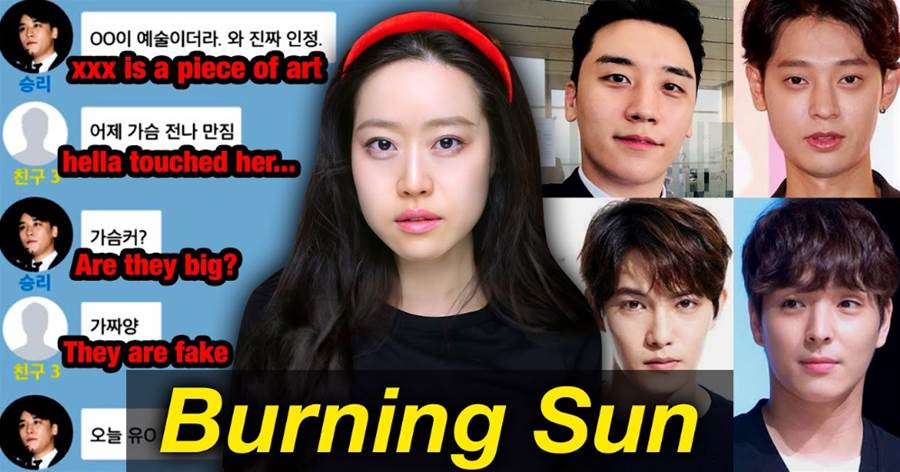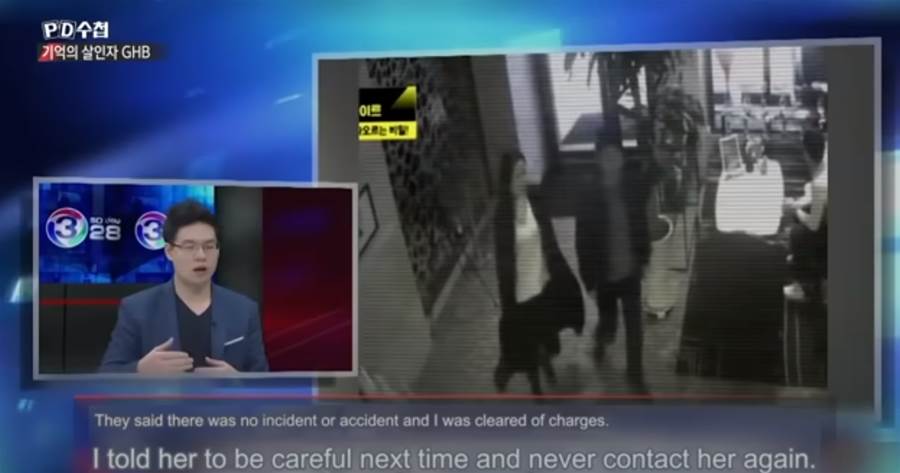

K-Pop's Dark Underbelly: The Scandal That Rocked the Entertainment World
The vibrant, glamorous world of K-Pop, known for its perfectly synchronized performances, dazzling visuals, and global appeal, was shaken to its core when an explosive scandal exposed its hidden darkness. At the center of this controversy was the Burning Sun nightclub in Seoul, co-owned by Seungri, a member of the globally acclaimed boy band BigBang. What initially seemed like a high-profile venue for partygoers turned out to be a hub of illegal activities, including drug trafficking, sexual exploitation, and prostitution.

The scandal first came to light in January 2019, when Korean broadcaster MBC reported an alleged assault at the Burning Sun nightclub. A male patron accused staff members of physical assault after he tried to intervene to protect a woman who appeared to be in distress. This incident triggered a series of investigations that exposed a deeper network of criminal activity tied to the club’s management. It was revealed that the club was actively involved in supplying drugs, facilitating sexual assaults, and using its influence to cover up its crimes.
Seungri, a key figure in the nightclub's operations, was accused of arranging sexual services for VIP clients and investors. These arrangements extended beyond Korea, with women allegedly being provided to international businessmen as part of business negotiations. The shocking revelations tarnished Seungri’s career, leading to his abrupt departure from the entertainment industry.
What truly sent shockwaves across the industry was the discovery of leaked KakaoTalk chatroom conversations involving several K-Pop celebrities. These chatrooms contained messages that described procuring prostitutes for high-profile clients, drugging women, and even distributing non-consensual explicit videos.
Singer Jung Joon-young was one of the main figures in these chatrooms, and he was found guilty of secretly recording and sharing videos of his sexual encounters without the consent of the women involved. The chatrooms not only revealed the actions of a few individuals but also highlighted a disturbing culture of entitlement and exploitation within certain circles of the entertainment industry.
As the scandal unraveled, it became one of the most significant legal battles in South Korea’s entertainment history. Seungri, once one of K-Pop's brightest stars, was charged with a multitude of crimes, including prostitution mediation, embezzlement, and habitual gambling.
In August 2021, a military court sentenced him to three years in prison, though the sentence was reduced to 18 months on appeal. He completed his sentence and was released in February 2023.
Jung Joon-young, another high-profile figure implicated in the scandal, faced charges of filming and distributing illegal videos. He was arrested in March 2019 and later sentenced to six years in prison, though this was reduced to five years upon appeal. The court cited his lack of remorse as a factor in the original sentencing, underscoring the gravity of his actions.
The fallout from the Burning Sun scandal was devastating for the K-Pop industry. YG Entertainment, the agency representing BigBang, faced severe backlash. Its founder, Yang Hyun-suk, stepped down amid allegations of financial crimes and his own involvement in the scandal. Public trust in K-Pop idols, long revered for their clean and polished images, was deeply eroded.
The scandal also exposed systemic issues in the industry, including the unchecked power of entertainment agencies, the exploitation of young artists, and the lack of protection for women within the nightlife and entertainment sectors.
It prompted widespread calls for reforms, including better oversight of the entertainment industry and stricter enforcement of laws against sexual exploitation.
While K-Pop remains one of South Korea’s most successful cultural exports, the Burning Sun scandal forced the industry to confront its dark side. It served as a wake-up call about the dangers of unchecked power and the toxic environments that can flourish behind the scenes of a glamorous facade. The case highlighted the importance of protecting vulnerable individuals, both within the industry and beyond.
As the industry rebuilds its reputation, the lessons from the Burning Sun scandal remain a critical part of its evolution. Fans, agencies, and artists alike are calling for greater accountability and transparency, ensuring that such an incident never happens again. While the scars of the scandal run deep, the hope is that it will lead to a brighter, more ethical future for K-Pop.
With every step forward, the industry must reckon with its past, ensuring that the glitter of stardom no longer conceals the shadows lurking beneath.
